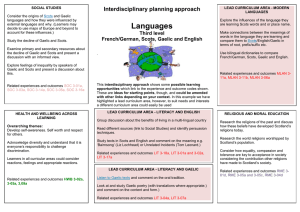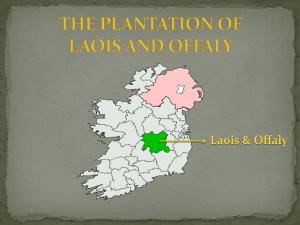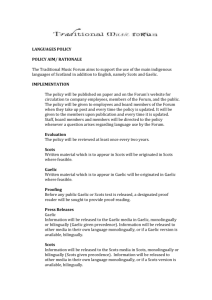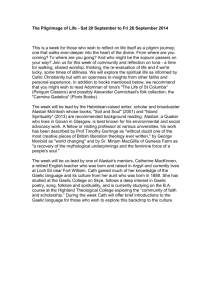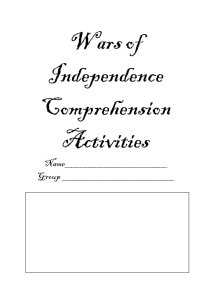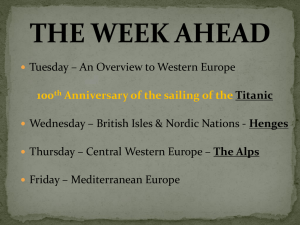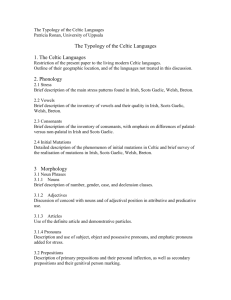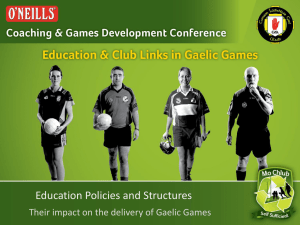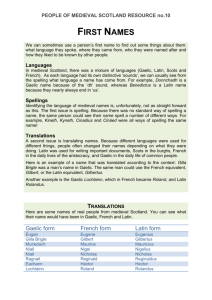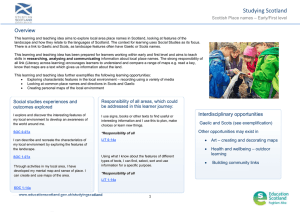Word file: 15. Languages
advertisement
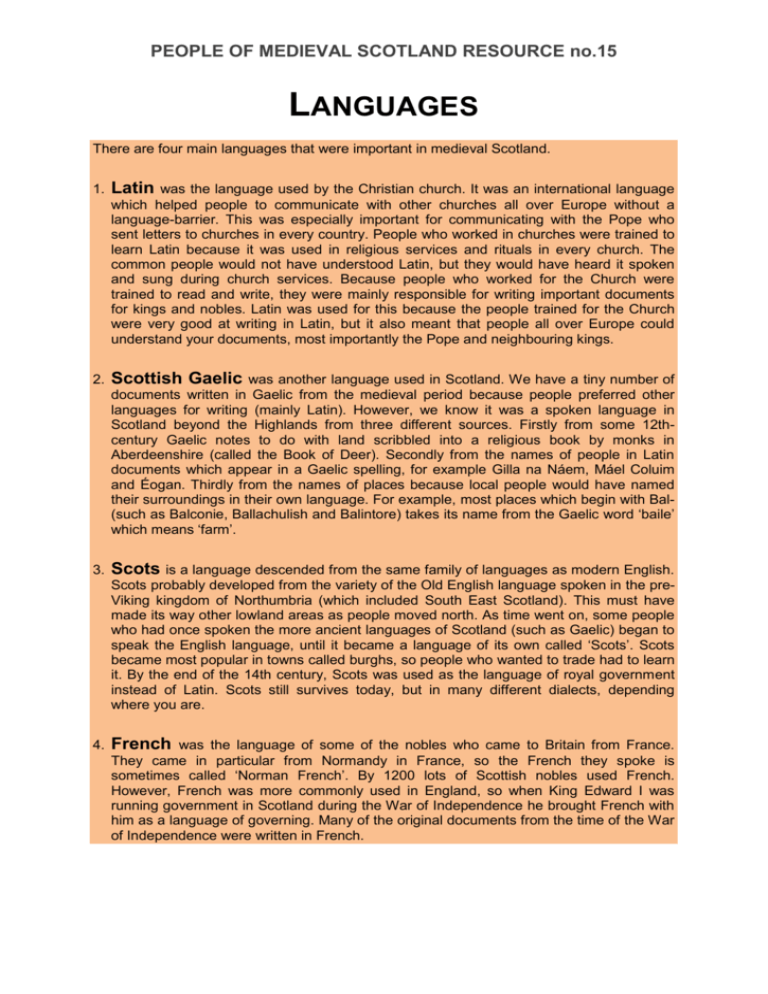
PEOPLE OF MEDIEVAL SCOTLAND RESOURCE no.15 LANGUAGES There are four main languages that were important in medieval Scotland. 1. Latin 2. Scottish Gaelic 3. Scots is a language descended from the same family of languages as modern English. was the language used by the Christian church. It was an international language which helped people to communicate with other churches all over Europe without a language-barrier. This was especially important for communicating with the Pope who sent letters to churches in every country. People who worked in churches were trained to learn Latin because it was used in religious services and rituals in every church. The common people would not have understood Latin, but they would have heard it spoken and sung during church services. Because people who worked for the Church were trained to read and write, they were mainly responsible for writing important documents for kings and nobles. Latin was used for this because the people trained for the Church were very good at writing in Latin, but it also meant that people all over Europe could understand your documents, most importantly the Pope and neighbouring kings. was another language used in Scotland. We have a tiny number of documents written in Gaelic from the medieval period because people preferred other languages for writing (mainly Latin). However, we know it was a spoken language in Scotland beyond the Highlands from three different sources. Firstly from some 12thcentury Gaelic notes to do with land scribbled into a religious book by monks in Aberdeenshire (called the Book of Deer). Secondly from the names of people in Latin documents which appear in a Gaelic spelling, for example Gilla na Náem, Máel Coluim and Éogan. Thirdly from the names of places because local people would have named their surroundings in their own language. For example, most places which begin with Bal(such as Balconie, Ballachulish and Balintore) takes its name from the Gaelic word ‘baile’ which means ‘farm’. Scots probably developed from the variety of the Old English language spoken in the preViking kingdom of Northumbria (which included South East Scotland). This must have made its way other lowland areas as people moved north. As time went on, some people who had once spoken the more ancient languages of Scotland (such as Gaelic) began to speak the English language, until it became a language of its own called ‘Scots’. Scots became most popular in towns called burghs, so people who wanted to trade had to learn it. By the end of the 14th century, Scots was used as the language of royal government instead of Latin. Scots still survives today, but in many different dialects, depending where you are. 4. French was the language of some of the nobles who came to Britain from France. They came in particular from Normandy in France, so the French they spoke is sometimes called ‘Norman French’. By 1200 lots of Scottish nobles used French. However, French was more commonly used in England, so when King Edward I was running government in Scotland during the War of Independence he brought French with him as a language of governing. Many of the original documents from the time of the War of Independence were written in French. Account showing the role of Gaelic as the ‘mother tongue’ in Alexander III’s inauguration as king in 1249 This account was written near the time of Alexander III’s inauguration, which took place on 13 July 1249 at Scone, near Perth. The earls Malcolm, earl of Fife, and Mael Ísu, earl of Strathearn, and many other nobles led Alexander, soon to be king, to a cross standing in the cemetery at the east part of the church. They placed Alexander in the royal seat which was adorned with silk cloths woven in gold. The bishop of St Andrews and other assistants with him consecrated Alexander as king, as was proper. Also, while the king was sitting upon the royal seat, earls and other nobles on bended knee spread their garments under his feet. And behold, after they had done this one by one, a certain highland Scot kneeling suddenly before the throne greeted the king in the mother tongue [Gaelic], bowing his head and saying: “Bennachd Dé, rí Albanach, Alexanndar mac Alexanndair meic Uilleim meic Énri meic Dauid”. (‘The blessing of God, king of Scots, Alexander son of Alexander [II] son of William son of Henry son of David [I]’). And in this way he read the genealogy of the kings of Scots to the end. 2
